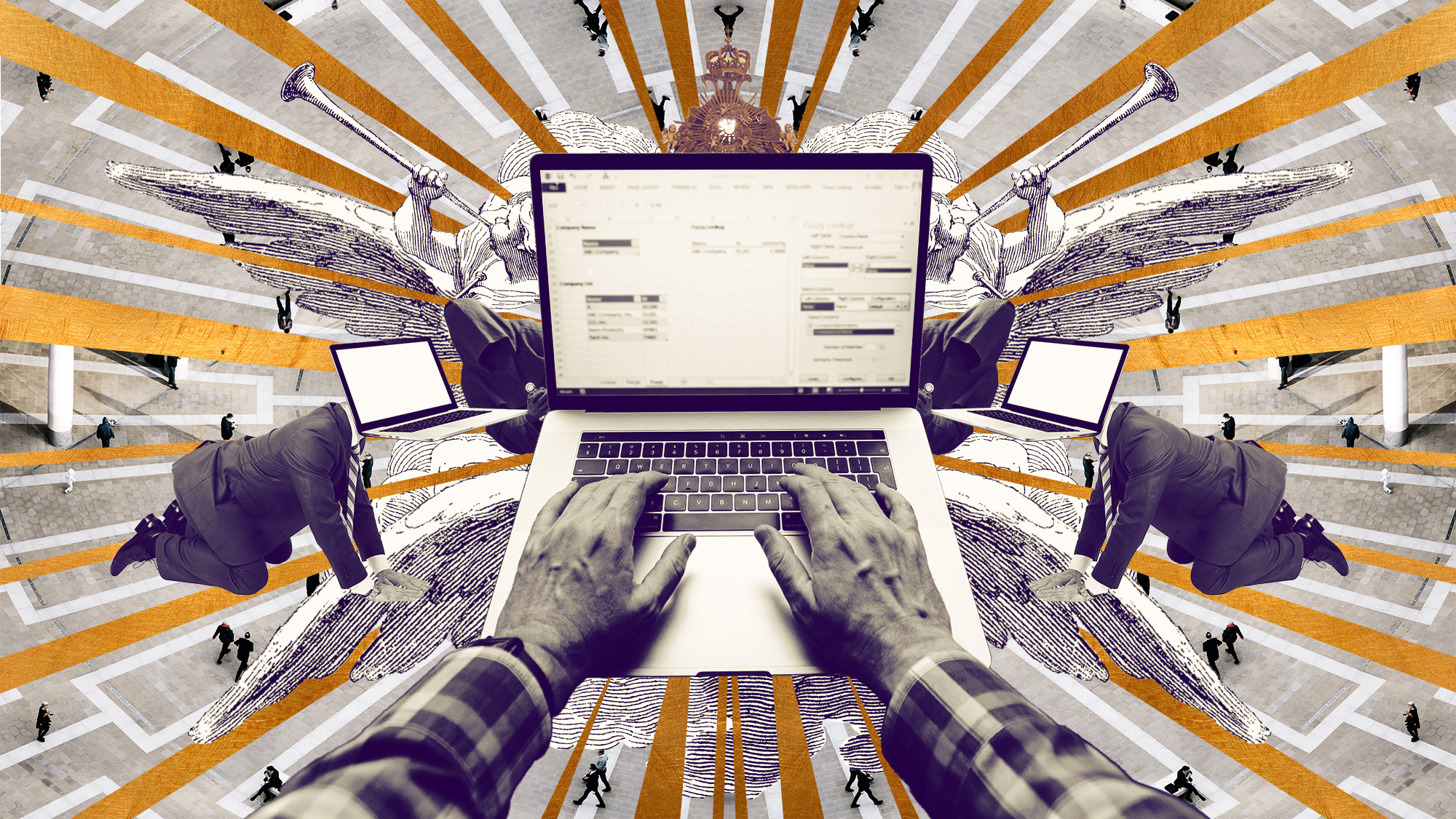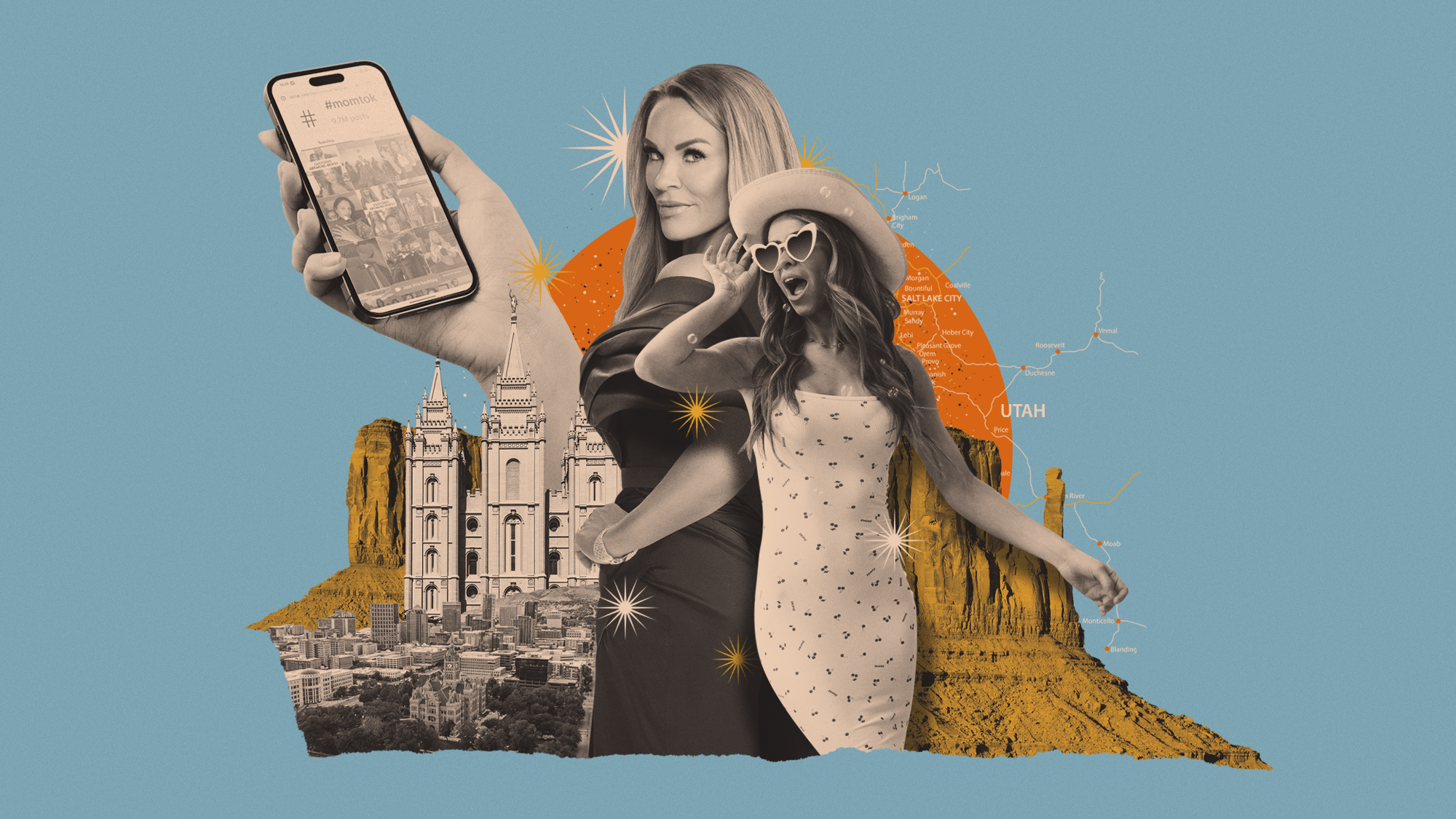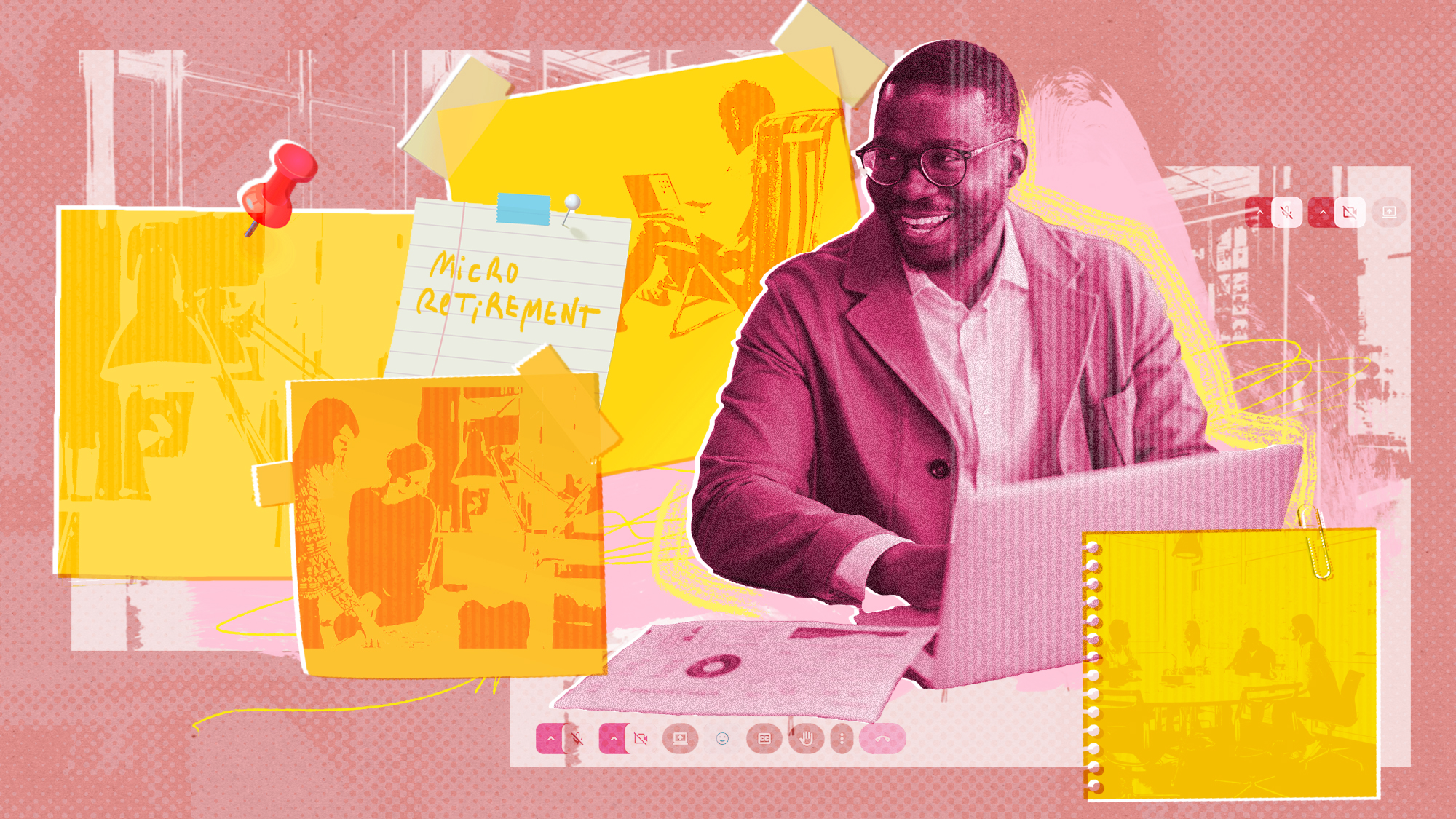Workism: how the workplace became America's newest place of worship
The office has become the center of people's lives


A free daily email with the biggest news stories of the day – and the best features from TheWeek.com
You are now subscribed
Your newsletter sign-up was successful
As America's attitudes toward religion have continued to shift, it was perhaps inevitable that Americans would now worship at the altar of work instead. There's a word for seeking such validation, identity and community in your career: workism.
When work becomes 'the centerpiece of one's identity'
Derek Thompson coined the phrase "workism" in a 2019 essay for The Atlantic, a term he used to describe a phenomenon among elite, wealthy, college-educated men with whom work morphed "into a kind of religion, promising identity, transcendence and community." Affluent men were already working more than they did decades ago, having been "reared from their teenage years to make their passion their career and, if they don't have a calling, told not to yield until they find one," Thompson pointed out.
Workism is a belief system that elevates work beyond a means of economic production to "the centerpiece of one's identity and life's purpose," Thompson explained. It is also the belief that "any policy to promote human welfare must always encourage more work." The leading group pushing this overzealous love for labor includes America's wealthiest men, who have "transformed themselves into the world's premier workaholics, toiling longer hours than both poorer men in the U.S. and rich men in similarly rich countries," Thompson noted. That shift in behavior "defies economic logic — and economic history," as the rich have traditionally had more leisure time. And while workism found its roots among the elite, "the ethos is spreading — across gender and age," he added.
The Week
Escape your echo chamber. Get the facts behind the news, plus analysis from multiple perspectives.

Sign up for The Week's Free Newsletters
From our morning news briefing to a weekly Good News Newsletter, get the best of The Week delivered directly to your inbox.
From our morning news briefing to a weekly Good News Newsletter, get the best of The Week delivered directly to your inbox.
As Americans increasingly "worship workism," the country's leaders "consecrate it from the marble daises of Congress and enshrine it in law," Thompson mused. He highlighted that while most governments guarantee new parents paid leave, the U.S. has no such guarantee. "The religion of work isn't just a cultist feature of America's elite," he said. "It's also the law."
Thompson warned against the shift because "our desks were never meant to be our altars." Today's labor force is built to prioritize the needs of consumers and capitalists, "not to satisfy tens of millions of people seeking transcendence at the office." It's hard to find self-actualization at most jobs, so the "mismatch between expectations and reality is a recipe for severe disappointment if not outright misery," and it might be why rates of depression and anxiety have never been higher.
The risks of worshipping work
There are perils to treating work like a religion. "One is that it's just not a burden our jobs are designed to bear," Simone Stolzoff, author of "The Good Enough Job: Reclaiming Life from Work," said in an interview with Wired. When we seek transcendence at work, it creates "massive expectations" that jobs cannot consistently meet. Another risk is that in overinvesting in one aspect of our lives, other parts of us are neglected. "As so many people found out during the pandemic, if your job is your sole source of identity and you lose it — what's left?"
Americans have been taught to look at their jobs as a calling, and reducing jobs to simply "an exchange of your time and your labor for money is not the most sexy thing in the world," Stolzoff conceded. But taking a more "transactional approach to work can liberate both employers and employees." It would free employers to "focus on setting clear expectations about what good work looks like" and employees to "treat work as a living and not the entirety of their lives."
A free daily email with the biggest news stories of the day – and the best features from TheWeek.com
Workism has also affected American parents' attitudes toward their children's futures and their own, per a study released by the Pew Research Center in 2023. The Pew data offers "mixed evidence" about whether the anxiety about children's professional development has spread from upper and upper-middle classes to the rest of American society, Ross Douthat pointed out for The New York Times. Most American parents said it was more important for their kids to be honest, hardworking and helpful than ambitious. But when asked to compare "professional aspirations versus personal ones," like marriage and a family of their own, "jobs win out easily — by an extraordinary margin," he added. According to Pew, 88% of American parents said financial success and professional happiness were "extremely" or "very" important for their children. Only 20% gave the same rating to future marriage and children.
Douthat was wary of some of Pew's findings. Still, if you take the results at face value, "you get an emphasis on work and finances over family, religion, and politics that seems extremely relevant to the debate over the developed world's declining birthrates." It suggests "a way that economic and cultural forces can unite to shape the way that people set priorities for adulthood," he added. Looked at that way, it is easy to see how someone can "grow up with the same theoretical aspirations for marriage and family as past generations," but still see those goals as secondary. Either way, workism looks "unmistakable and powerful" in the Pew study, "looming above religious commitment, political allegiance and even reproductive self-interest when it comes to what American parents want, or think they should want, for their kids," he concluded.
The future of how Americans see work
Derek Thompson thinks "we're at the cusp of a fourth revolution in work," per a more recent essay for The Atlantic. Workism is "facing a double-barreled revolution — the remote-work phenomenon and the dawn of generative AI," he mused.
"By snipping the tether between work and home," telecommuting has changed "the way that millions of people work, the kinds of companies they start and where they live," Thompson noted. There is less commuting and more empty offices that have "decimated public-transit revenue, buckled the commercial-real-estate industry and triggered showdowns between in-office bosses and white-collar workers seeking flexibility in their schedule," he explained. Remote workers are also seeking bigger homes, "which has created a 'donut effect' of plumped-up housing prices in the suburbs of many metro areas." Some data suggests that telecommuting "has encouraged men to pull back on working hours, possibly putting a dent in workism itself."
"The other prong is AI," he continued. The release of OpenAi's ChatGPT and its large language model, GPT-4, has "transformed the way millions of people think about the future of work." We once believed that "general intelligence and creativity were firmly in the 'for humans only' category." However, advanced generative artificial intelligence tools might prove the opposite. "The implications of this kind of program for white-collar industries are both thrilling and terrifying," he said.
Theara Coleman has worked as a staff writer at The Week since September 2022. She frequently writes about technology, education, literature and general news. She was previously a contributing writer and assistant editor at Honeysuckle Magazine, where she covered racial politics and cannabis industry news.
-
 How the FCC’s ‘equal time’ rule works
How the FCC’s ‘equal time’ rule worksIn the Spotlight The law is at the heart of the Colbert-CBS conflict
-
 What is the endgame in the DHS shutdown?
What is the endgame in the DHS shutdown?Today’s Big Question Democrats want to rein in ICE’s immigration crackdown
-
 ‘Poor time management isn’t just an inconvenience’
‘Poor time management isn’t just an inconvenience’Instant Opinion Opinion, comment and editorials of the day
-
 The 8 best superhero movies of all time
The 8 best superhero movies of all timethe week recommends A genre that now dominates studio filmmaking once struggled to get anyone to take it seriously
-
 Josh D’Amaro: the theme park guru taking over Disney
Josh D’Amaro: the theme park guru taking over DisneyIn the Spotlight D’Amaro has worked for the Mouse House for 27 years
-
 The best fan fiction that went mainstream
The best fan fiction that went mainstreamThe Week Recommends Fan fiction websites are a treasure trove of future darlings of publishing
-
 How Utah became a media focal point
How Utah became a media focal pointIn Depth In producing the stars of #MomTok and reality TV alike, Utah has emerged as a media powerhouse
-
 Golden Globes affirm ‘One Battle,’ boost ‘Hamnet’
Golden Globes affirm ‘One Battle,’ boost ‘Hamnet’Speed Read Comedian Nikki Glaser hosted the ceremony
-
 ‘One Battle After Another’ wins Critics Choice honors
‘One Battle After Another’ wins Critics Choice honorsSpeed Read Paul Thomas Anderson’s latest film, which stars Leonardo DiCaprio, won best picture at the 31st Critics Choice Awards
-
 The best alcohol-free alternatives for Dry January
The best alcohol-free alternatives for Dry JanuaryThe Week Recommends Whether emerging from a boozy Christmas, or seeking a change in 2026, here are some of the best non-alcoholic beers, wines and spirits to enjoy
-
 13 Gen Z workplace terms and phrases
13 Gen Z workplace terms and phrasesin depth From ‘quiet firing’ to ‘resenteeism,’ there are clues about why employers and employees in America are having such a sad time
